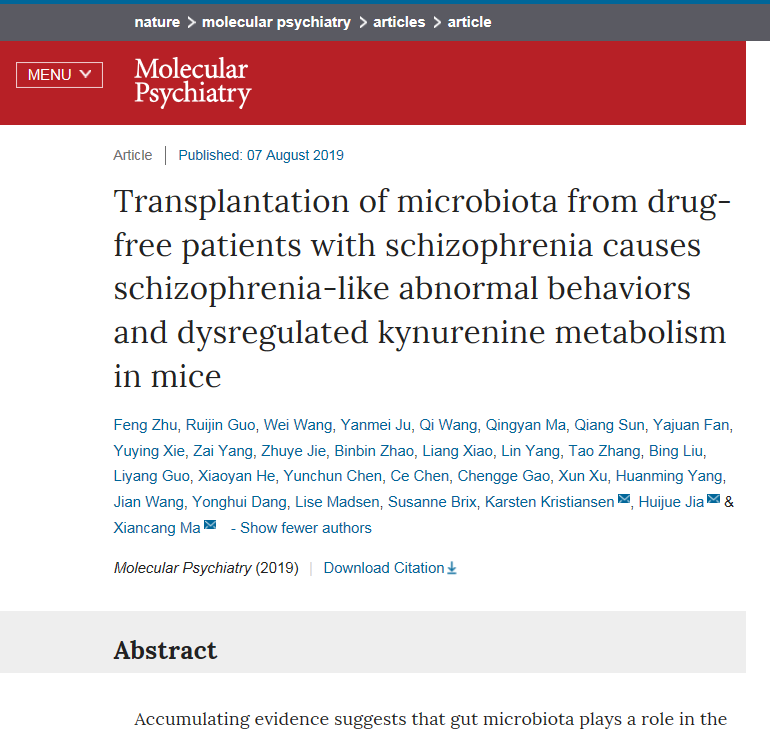On August 7, 2019, an article entitled Transplantation of microbiota from drug-free patients with schizophrenia causes schizophrenia-like abnormal behaviors and dysregulated kynurenine metabolism in mice, which illustrated the latest research results on the gut-brain mechanism of schizophrenia by the team led by Professor Ma Xiancang from the First Affiliated Hospital of Xi’an Jiaotong University, was published online in Molecular Psychiatry, a top international journal in the field of psychiatry.
This study for the first time revealed that gut microbiota from schizophrenic patients can regulate the tryptophan-kynurenine metabolic pathway and induce schizophrenia-related behaviors in mouse models, which further validate the hypothesis of microbiota-gut-brain axis in schizophrenia and provided novel ideas for screening new drug targets and mitigating symptoms of schizophrenia-spectrum diseases by regulating gut microbiota.
This study was jointly completed by our hospital and Shenzhen Huada Gene Research Institute. The First Affiliated Hospital of Xi 'an Jiaotong University is the affiliation of the first author, Dr. Zhu Feng of our hospital is the first author and Professor Ma Xiancang is the corresponding author.
The team led by Professor Ma Xiancang started to investigate the role of gut microbial disorders in the pathogenesis of schizophrenia in 2016, demonstrating for the first time that the psychomotor hyperactivity, impaired spatial learning and memory can be caused after transplantation of gut microbiota from drug-free schizophrenic patients. After analyzing the gut microbiota of the mouse models by 16S rRNA flora sequencing in combination with metagenomic shotgun sequencing, 55 species of bacteria related to behavioral abnormalities were identified. Compared with the mice transplanted with fecal microbiota from healthy controls, the kynurenine-kynurenic acid signaling pathway of tryptophan degradation was activated in both periphery and brain of mice transplanted with the microbiota from patients, and the levels of dopamine in prefrontal cortex and 5-HT in hippocampus of mice were also up-regulated.In vitroexperiment confirmed that the fecal microbiota from patients contained active substances that can regulate the metabolic process of caninine. These findings unravel a variety of intestinal bacteria and kynurenine-kynurenic acid signaling pathway involved in schizophrenia, providing multiple targets for subsequent translational research and clinical intervention.
Link: https://www.nature.com/articles/s41380-019-0475-4
